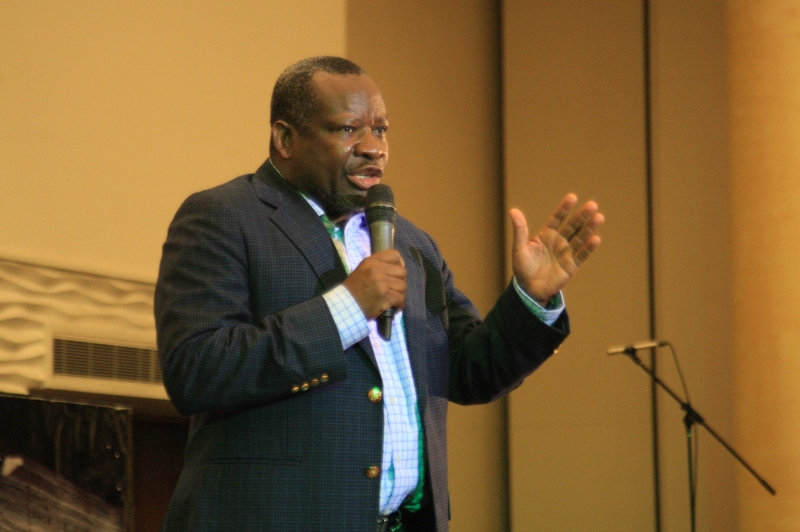A senior adviser to Nigerian President Goodluck Jonathan insisted that it was “not helpful” to heap blame upon the government in Abuja as it struggles to rescue more than 200 schoolgirls kidnapped three weeks ago by the Islamist militant group Boko Haram. In an interview with The Washington Post, Oronto Douglas, a longtime human rights lawyer who is special adviser to the Nigerian president on research, strategy and documentation, also called for greater international assistance in the country’s struggle against terrorism.
“The Nigerian government is doing all it can in collaboration with its allies to ensure that our daughters, the girls, are brought back home — everything in its power,” says Douglas, who was on a visit to Washington.
The perceived slowness of Abuja’s response to the mass abduction has sparked protests both inside and outside Nigeria. Douglas said such criticisms “are normal for democracies,” though he did not say whether they were justified.
“This is not about politics, it is about the protection of human lives,” Douglas said. The challenge to locate the missing schoolgirls and free them from captivity is a complex one. Boko Haram, as outlined here, is a ruthless, fanatical group that has escalated its war against the Nigerian state, and authorities fear that an aggressive operation could lead to the militants further harming their captives. “In an attempt to rescue the girls, we must not also endanger their lives,” Douglas says.
The plight of the girls has spawned a viral Twitter meme, joined by prominent global celebrities and politicians. It has also raised questions about the Nigerian government’s handling of the crisis.
Douglas instead pointed to the transnational threat posed by Boko Haram, whose base of operations in Nigeria’s northeast extends across borders into three other countries. “The day when nations act alone are over,” he said. The United States and other Western countries have promised technical assistance in the hunt for the missing girls, and Douglas appealed for more help. “Terrorism is very new in Nigeria,” he said. “You need international support.”
News emerged today that militants had killed up to 300 villagers earlier this week during a nighttime raid on a town along the border with Cameroon; shops and homes were razed. This year alone, attacks attributed to Boko Haram have killed more than 1,500 people. Douglas says that in Boko Haram, Nigeria has found a “more ambitious, more ferocious, more threatening dimension that is threatening the unity of our country.”
The capital, Abuja, plays host this week to a session of the World Economic Forum, attended by a coterie of international statesmen, including Chinese premier Li Keqiang, as well as business leaders. The meeting kicked off amid a tense security climate. A Boko Haram bus bombing in the city last month killed dozens.
So Douglas finds it particularly galling that his government has come in for the sort of criticism it has faced since the disappearance of the Chibok schoolgirls. “When a terrorist bomb goes off in Afghanistan, they don’t blame the Afghan government,” Douglas said. “So why the reverse with Nigeria?”
“Don’t see the Nigerian government as the problem. Don’t blame Nigeria going forward,” he insisted. “The blame game should be taken to the back burner.”
(via Washington Post)







